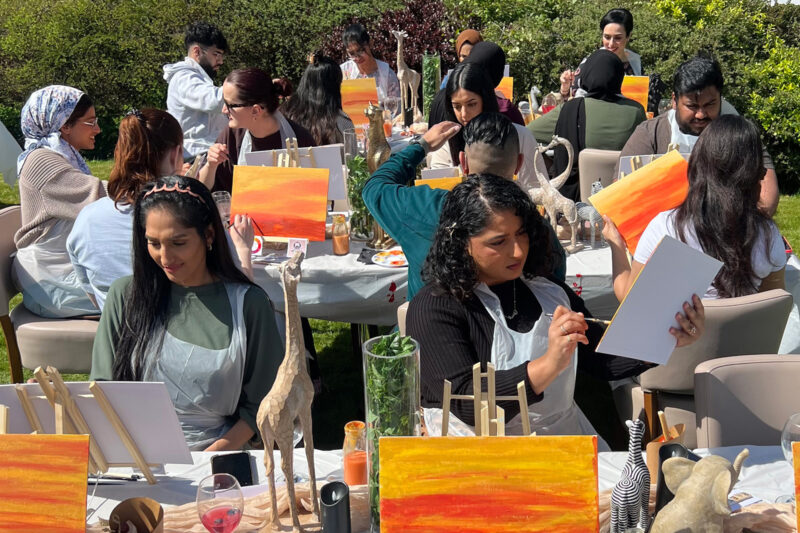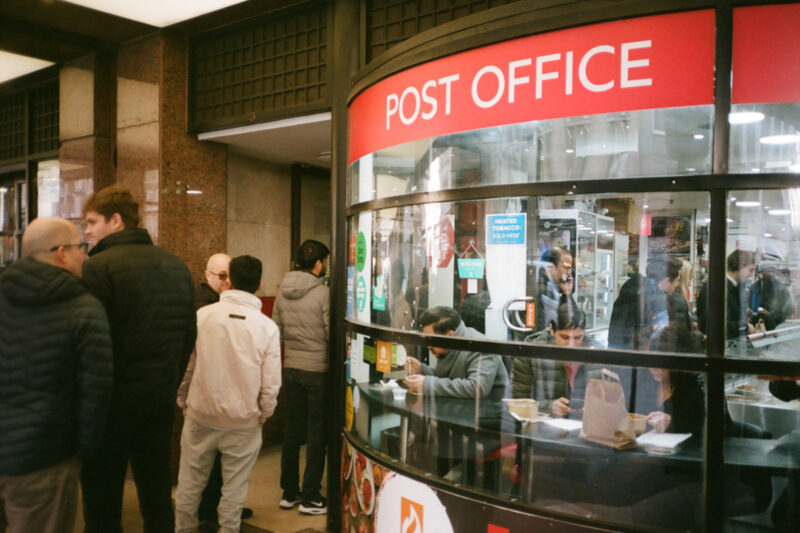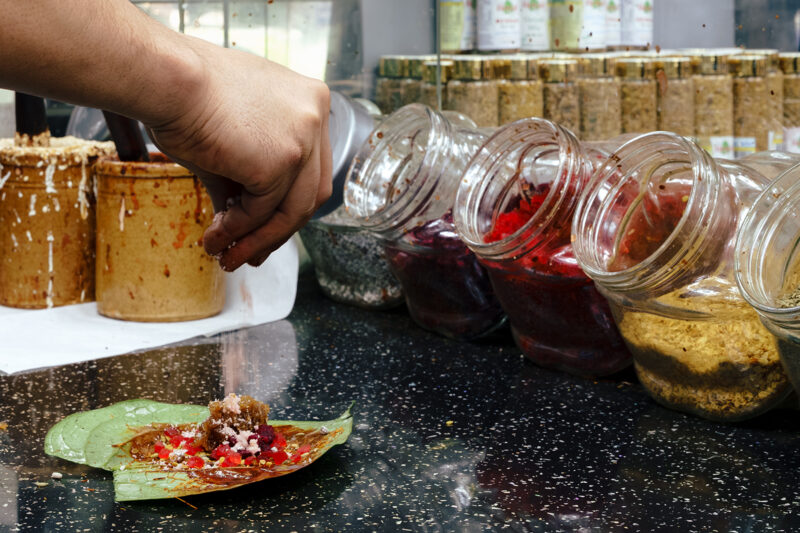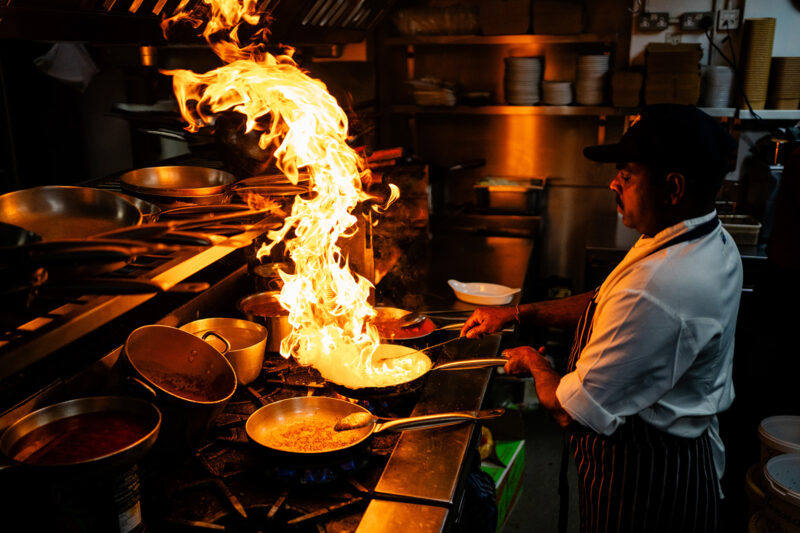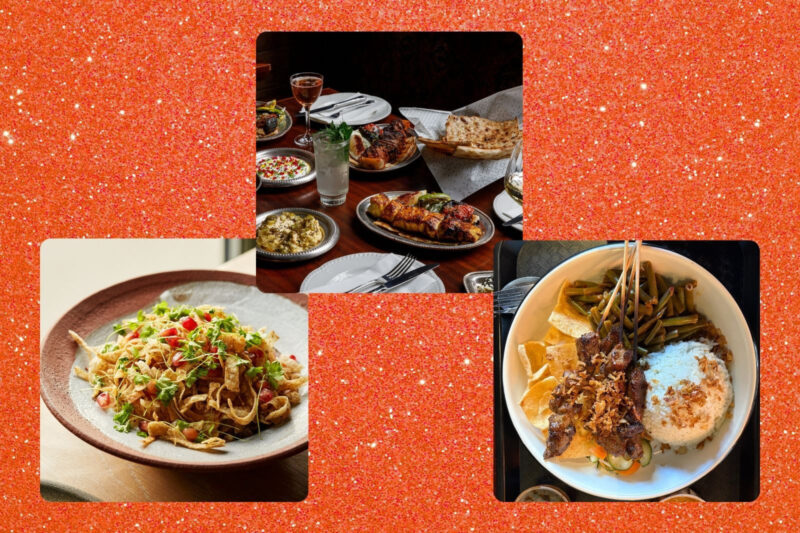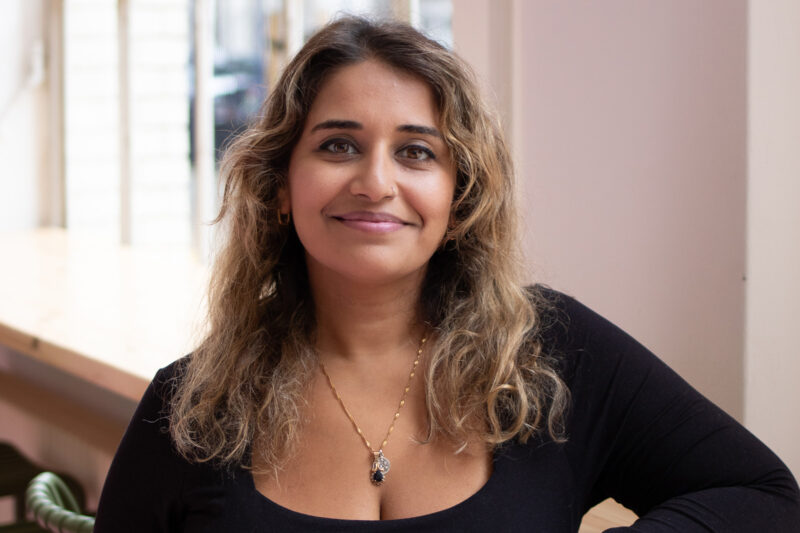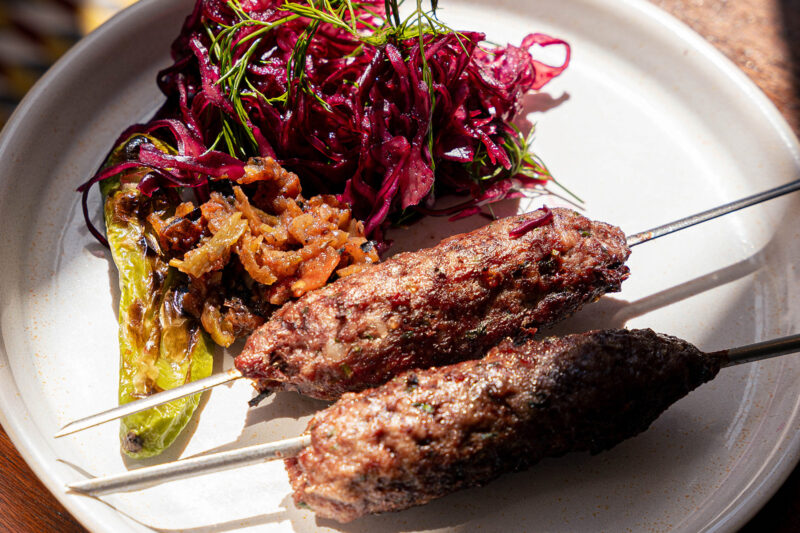Meet the women using social media to sell halal food
Hundreds of women around the UK have become successful online vendors on Facebook and Instagram, selling everything from biryanis to samosas
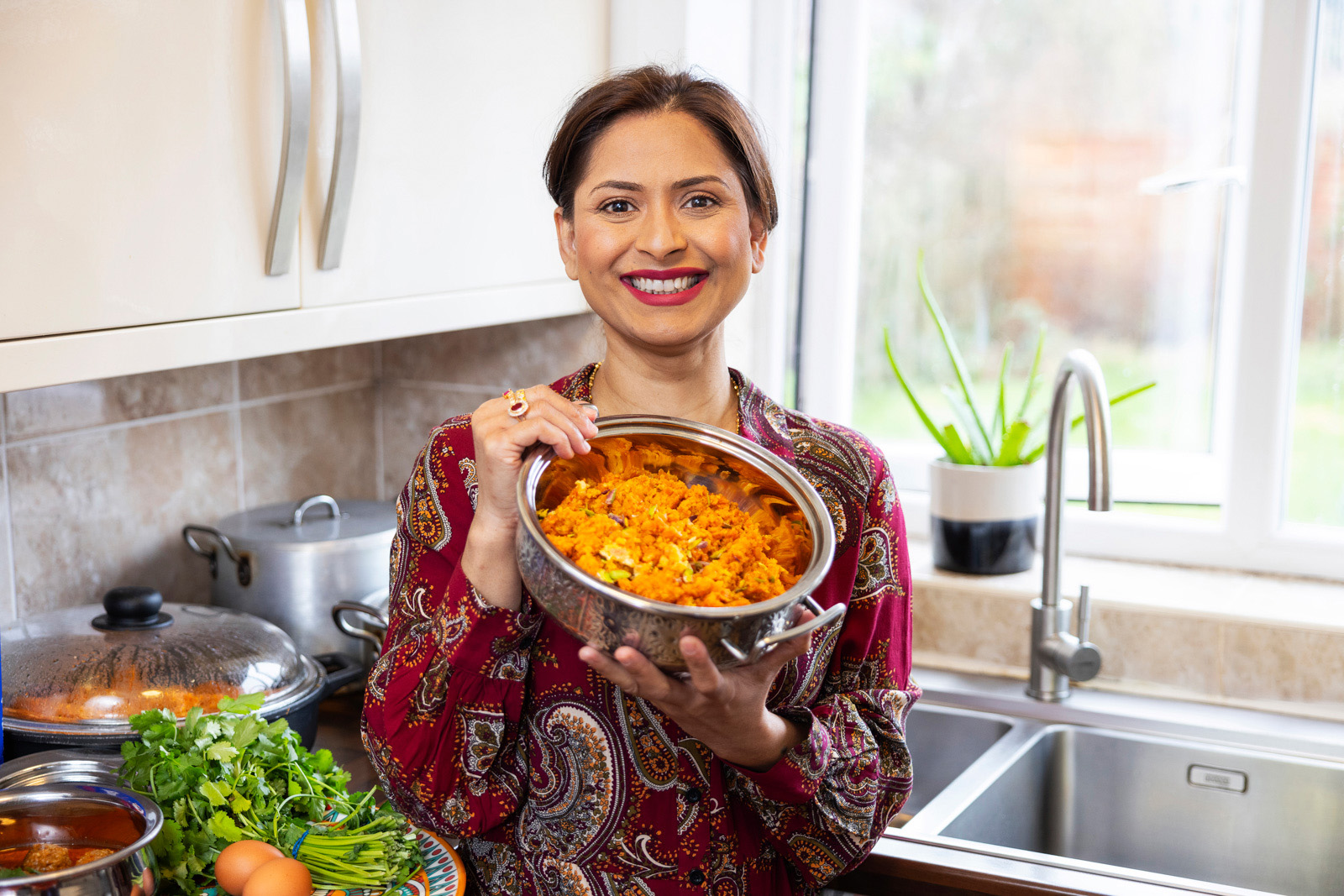
Before I even get the chance to introduce myself to Rameen Kay, the smell of fresh pilau wafts through the house to greet me. The mother of two has been preparing the rice dish, four hours in advance of its collection by a customer in the afternoon.
Kay’s customer is driving 20 miles from Warrington, to collect the order at her house in Stockport. “Today’s order is pilau, chicken korma and meat karahi,” she says, ushering me into the living room. “I think it’s for a party.”
Kay is one of hundreds of Muslim women across the UK who sell home-cooked halal food via social media platforms, including Instagram and Facebook. Typing “halal food” into Facebook Marketplace or Instagram presents a dizzying array of options, from freezer staples like samosas and pakoras to small, sweet laddoos to vats of biryani big enough to feed 30 people.
According to one study by Techreport, Facebook Marketplace is home to around 250 million vendors, with 62% of them female.
One of these online businesses is MJ’s Kitchen, which came into existence in January after Kay finally took the plunge following years of deliberation. “It’s just difficult to know where to start,” says Kay, putting a samosa onto my plate. “My husband always said my food was good enough to sell but I didn’t really take it seriously.”
Kay decided to launch her food service after an iftar meal during Ramadan last year, when she accidentally made too much Kabuli pulao, a traditional Afghan rice dish laced with raisins. Instead of saving it for the next day, Kay and her husband decided to give it to some Muslim taxi drivers breaking their fasts during their shifts at Manchester airport.
“They later asked my husband which restaurant he had got the pilau from – when he told them it was homemade, they couldn’t believe it,” says Kay. “That gave me the confidence to think I could do something I find so fun and therapeutic and turn it into a business.”
The fact that Kay finds cooking fun is evidenced by the laden table in front of me, and the containers of shami kebabs and pilau that she insists I take home after our interview.
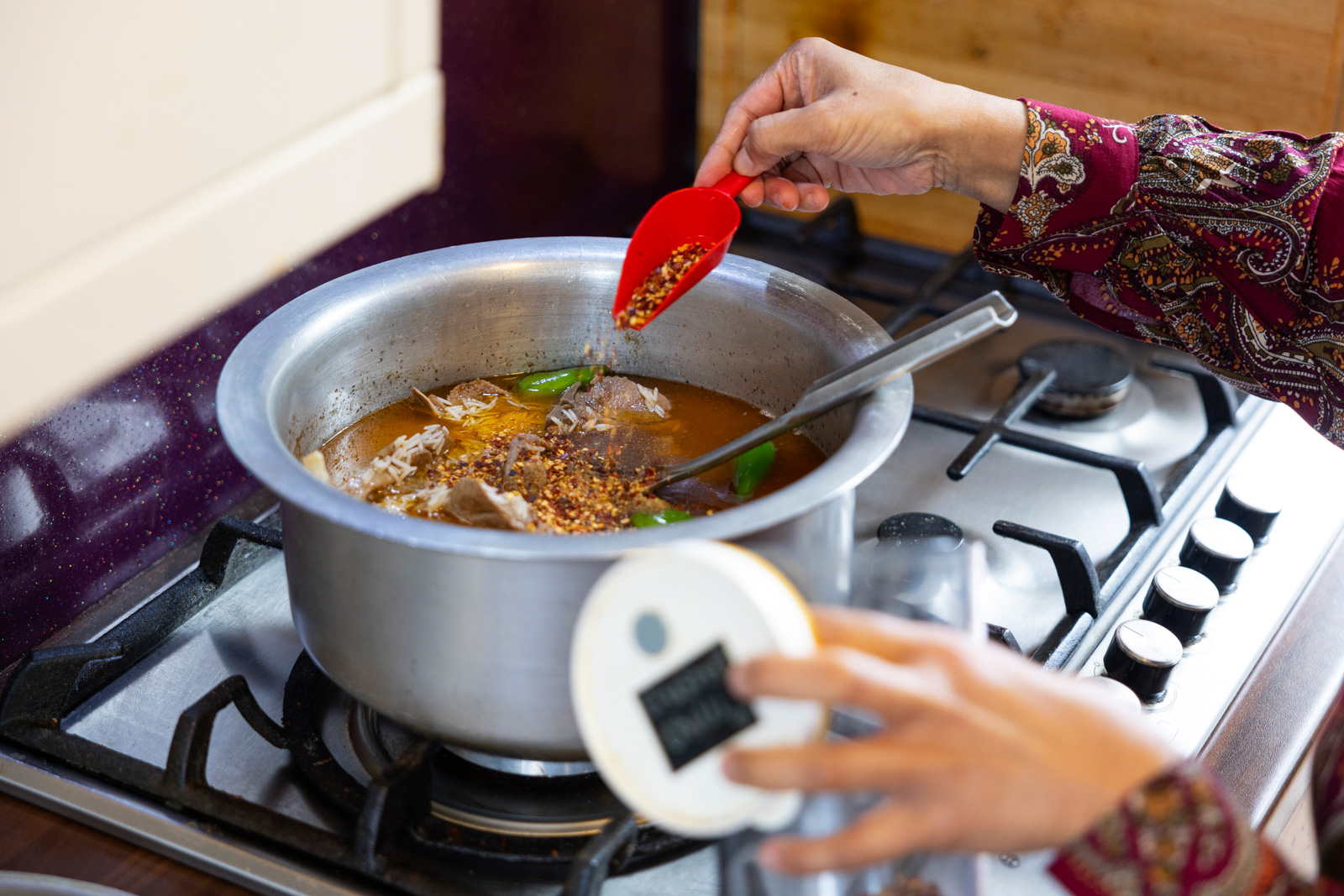
When Kay moved to Stockport from Pakistan in 2004, she struggled to find authentic halal Pakistani food and would regularly call her mother for advice. “This was back in the day when we used to have to buy calling cards to make international calls. I used to spend card upon card asking my mum for the recipes I missed eating – I didn’t think I would then end up making food for other people who felt the same.”
Kay did a test run of her home business on Facebook Marketplace, offering containers of kadhi pakora (gram flour dumplings in a spicy yoghurt stew). Around eight people put in orders and Kay and her family didn’t have any left for their dinner that evening.
‘Social media really helped me to put myself out there. Without it, I don’t think I would have taken that first, crucial step’
In order to legally sell food from a place of residence, vendors are required to register with their local council, which then sends an official to evaluate food hygiene standards. Kay is currently in conversation with her council to register her home business.
For some entrepreneurial Muslim women, online platforms like Facebook and Instagram have helped them reach both local and national customers. Dr Amna Khan, a senior lecturer in consumer behaviour and retailing at Manchester Metropolitan University, says: “There are lots of benefits of selling from home – sellers can use their own kitchen equipment and there are no overheads in rent. The way that consumers are consuming is also fundamentally changing. We spend a lot of time on social media and these women are tapping into this market.”
Farheen Fatima channelled her marketing background into the launch of her part- time home food business, Farro’s Kitchen, in December 2022. “I knew that this was an emerging market and I realised that a lot of my competitors weren’t offering delivery and that’s helped me to earn five or six regular customers every week.”
Fatima works part-time remotely from Bradford as a digital marketing specialist and uses the rest of the week to cook biryanis, aloo palak (spinach and potato curry) and chana daal (chickpea lentils).
Fatima says she found registering her business with her local council to be easy. “It was all fairly straightforward, that was the easy bit. But when I started getting more orders, I found myself getting up at 3am on the weekend to start cooking – things got tougher.”
At the start of 2023, Fatima made the decision to hire a helper to ease her workload and is considering purchasing another fridge freezer as her orders continue to pour in.
Though she has considered selling her food from a restaurant, she has decided against scaling up. “I’d have to work seven days a week, and factor in costs for hiring the space itself. The way it is now I can work on my own terms and balance spending time with my daughter as well.”
As I tuck into my treats courtesy of Kay, I see a notification on my phone – someone has listed samosas a few streets away from my location. It reminds me of how hyperlocal these entrepreneurial women are, fuelled by their desire to share their traditional food.
 Newsletter
Newsletter


